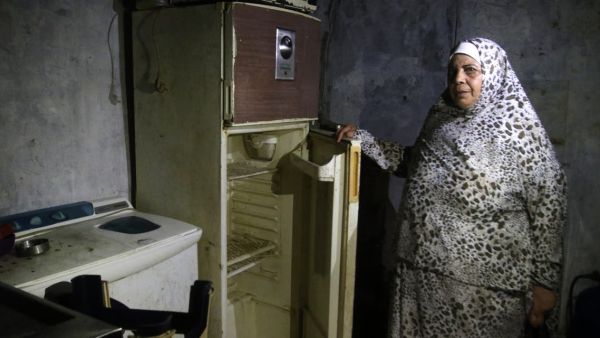ALBAWABA – Lebanon is experiencing a mental health crisis these days. It has been triggered by the current economic crisis and the dysfunctionality of the state and it is likely to continue if the situation, mainly the economic livelihood of the Lebanese people doesn’t get better and quickly.
Many Lebanese today are actively contemplating suicide, they want to take away their lives and be done with it! This is not graphic imagination put out by different media outlets but by practitioners in the Lebanese health sector.
The Embrace Suicide Hotline in Lebanon these days is working overtime in overdrive because of the number of people who are desperate. The hotline used to operate on a 17-hour basis but the organizers want to increase it to 20 hours per day.
Embrace, a national hotline service, seeks to prevent people from taking their lives. These days they get around 1100 calls, double the number just a few months ago as AFP reports.
Awful story on the only suicide hotline in a country falling apart. The phones don't stop ringing; almost one in six callers are now children. And the crisis means many psychiatrists have emigrated, while antidepressants are impossible to find. https://t.co/ZkdRkv4nvH
— Gregg Carlstrom (@glcarlstrom) September 24, 2021
This is because the situation in Lebanon has become so desperate spurned on by incessant power cuts, expensive basic foodstuffs and inability to buy medicines, ordinary or otherwise, because none are available on the shelves. And why? Because the national currency standing at 20,000 lires to the dollar is no longer able to stand up. The government says they have no foreign currency in their coffers to import goods.
People are losing hope. Phone calls answered by the hotline speak of desperation. One man is thinking of taking away his life because he can’t feed his children and another wanting to fall off a bridge because he is homeless.
According to a study on suicide in Lebanon, by @IDRAAC:
— Sanaa+ سناء (@Sanaakhouri) September 19, 2021
▪︎ Suicidal behavior is the highest among people aged 18-34.
▪︎ Across all ages:
• 1 in 20 seriously thought of suicide.
• 1 in 60 planned for suicide.
• 1 in 50 attempted suicide throughout their lifetime.
The story is being picked up by different media outlets in Lebanon and abroad by the Turkish TRT and Al Jazeera is taking about the traumatic health state of many Lebanese that got worse since the Beirut mega Port Blast in August 2020 which killed over 200 people and 6500 injured not to mention anything about the destruction.
The Embrace hotline has been receiving approximately 1,100 calls each month. The calls are anticipated to increase as more and more people fall into despair https://t.co/DKlu7VeKfo
— TRT World (@trtworld) September 26, 2021
And this resulted in different stress disorders of insomnia, fear, death, nightmares, anxiety, depression and loneliness and much more. The suicidal tendencies in Lebanon are no longer associated with a distinct age groups. Many young people are calling the hotline. The number of those under the age of 18 wanting to talk has increased to 15 percent whereas it was 10 percent the previous months.
The social media has been buzzing about the Embrace hotline with different point of views. It is suggested that the issue of suicide has become something that is actively considered among the Lebanese. One quoting a report by the Institute for Development, Research, Advocacy and Applied Care suggests that one in 20 in Lebanon have actively thought of committing suicide while one in 50 have attempted to take away their lives.
Institute for Development, Research, Advocacy and Applied Care (Idraac) report that one in every 20 people in Lebanon has seriously considered suicide. One in 50 have attempted it. https://t.co/3tFPV6PjMy https://t.co/3tFPV6PjMy
— James Denselow (@jamesdenselow) September 20, 2021
These are scary figures! Earlier this year a report carried by the Turkish Anadolu news agency suggested that Lebanon witnesses a suicide case every 60 hours. But hold on. This figure is based on statistics provided by the Lebanese police between 2008 and 2018 and its published by the Asian Journal of Psychiatry.









